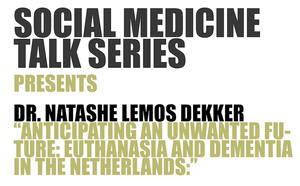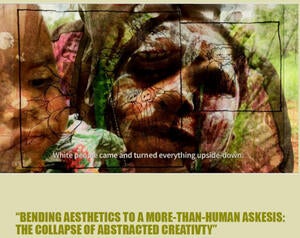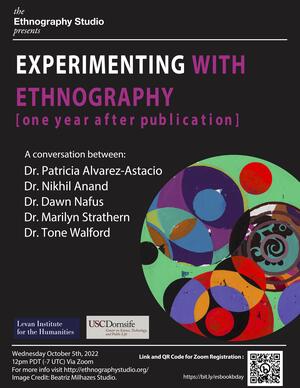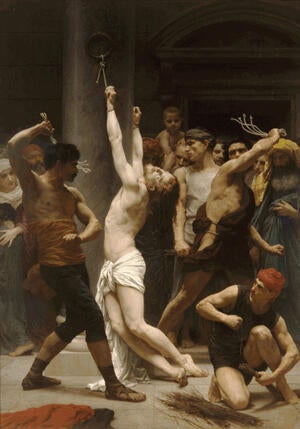“Anticipating An Unwanted Future: Euthanasia And Dementia In The Netherlands:”
The future with dementia is characterized by continuous speculation about biomedical possibilities of a cure and a future without dementia. At the same time, cure is not (yet) available, and dementia still too often inspires negative imaginaries in popular culture and media discourses.
As part of a book project on temporal experiences and ways of crafting the future at the end of life with dementia in the Netherlands, I show in this presentation how, for many of my interlocutors, the imagined future with dementia was a reason to re-quest euthanasia. However, timing euthanasia with dementia is extremely difficult and often results in the deferral of established boundaries.
Complicating euthanasia requests in this context is a dynamic in which the person with dementia is considered to lose the ability to oversee and decide on the timing of their request, resulting in an agonizing trade-off between being ‘too early’ and the fear of being ‘too late.’ In searching for ways to work through this conundrum, some have advocated that family members should gain legitimacy to decide on the timing of euthanasia based on a written will. While this shifts responsibility to the family, it may not solve the issue of timing. I examine how requests for euthanasia by people with dementia offer insight into the work of anticipation, revealing it to be a tem- poral orientation through which the future is made tangible. I show how my interlocutors negotiated emerging divergent horizons and temporal inequalities, and argue that anticipation is a process of establishing, collapsing, and renegotiating the temporal distance between present and future, bringing the future into the present while also, and simultaneously, keeping the future at bay as a continuous ‘not yet’.
Juxtaposing two projects, on the one hand, a film centered on a set of precolonial rock fish traps and their nonhuman ancestral relations in emmi karrabing lands, and, on the other hand, alice henry and the collapse of the western plateau, a graphic novel set in the debrisfields of the future, this talk focuses on how western epistemologies differentiate between creative fiction and nonfiction and the mythic.
We are celebrating the one year birthday of Experimenting with Ethnography: A Companion to Analysis (Duke University Press 2021, eds. Andrea Ballestero and Brit Ross Winthereik), highlighting how readers have drawn on, been inspired by, and also transformed the book’s provocations through their own pedagogical, research, and scholarly engagements with the text. This online event, hosted by the Ethnography Studio, will be moderated by Andrea Ballestero and Brit Ross Winthereik and will feature commentary by three guest speakers: Marilyn Strathern (University of Cambridge), Dawn Nafus (Intel), and Nikhil Anand (University of Pennsylvania). It will also feature a panel of two of the book’s contributors, Patricia Alvarez Astacio (Brandeis University) and Tone Walford (University College London). This event is co-sponsored by the USC Levan Institute for the Humanities and the USC Center on Science, Technology, and Public Life. Register for the Zoom link here: https://bit.ly/esbookbday.
J. LORAND MATORY
Lawrence Richardson Distinguished Professor of Cultural Anthropology, Duke University
The Enlightenment’s promises of freedom, equality before the law, and bodily autonomy have generated a sometimes-unconscious craving for the opposite. BDSM shines a light on the nostalgia for anachronistic and physically enforced hierarchy in modern romance, religion, and politics. This talk focuses on parallel but ethically divergent examples of this impulse in three products of the post-Enlightenment state—BDSM, Haitian Vodou, and Trumpism.
J. Lorand Matory is the Lawrence Richardson Distinguished Professor of Cultural Anthropology and the Director of the Sacred Arts of the Black Atlantic Project at Duke University. He is the author of Sex and the Empire That Is No More: Gender and the Politics of Metaphor in Oyo Yoruba Religion, Black Atlantic Religion: Tradition, Transnationalism, and Matriarchy in the Afro-Brazilian Candomblé, Stigma and Culture: Last-Place Anxiety in Black America, and The Fetish Revisited: Marx, Freud, and the Gods Black People Make.
Open to all interested participants.
Co-sponsored by the USC Dornsife Department of Anthropology



